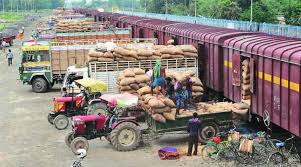India should not give concessions in dairy sector to the US: Amul

The Economic Times - 24 August 2020
India should not give concessions in dairy sector to the US: Amul
By Kirtika Suneja
Amul Managing Director R S Sodhi on Monday said that India should not give any concessions to the US under any trade deal as subsidised imported milk and other dairy products would kill livelihoods in India especially when the sector is expected to create 11 million jobs in rural households.
“There should be no concessions on dairy because this policy has made us self-sufficient and the largest producer of milk. The US gives $28 billion of subsidies to its dairy sector per annum. How will India face these subsidised products?,” Sodhi said at an event organised by civil society on the impact of a trade deal between India and the US.
He emphasised that agriculture and dairy are not trade issues for India but livelihood issues.
“Dairy is allowed from any country but we want equal footage. There are no restrictions on import. Around 10,000 tonne of powder is allowed under tariff quota,” he said, explaining that dairy is a $100 billion sector in India and about 100 million rural families depend on it of which 80% are landless marginal farmers.
Explaining that India imposes duties worth 30-60% on dairy imports, Sodhi said that the US imposes 60-70% duty on milk and its products but IIndia has not asked it for any import duty cuts.
“The tariffs here are reasonable and lower than in countries which want us to import their dairy under FTAs,” Sodhi said. India imports dairy worth Rs 200-300 crore annually.
The US has sought duty concessions on various dairy products including milk powder in the bilateral trade deal negotiations, which Washington is keen to conclude before its presidential elections in November. Separately agricultural produce such as apples, pecan nuts, walnuts, almonds and soybean along with with poultry are its other items of interest.
Sodhi said that the co-operative is against a free trade agreement (FTA) with any dairy-rich country such as Australia, New Zealand and the US. Concessions to dairy imports was one of the reasons that India exited the mega Regional Comprehensive Economic Partnership (RCEP) trade agreement last year. Australia and New Zealand too were part of the grouping.
“There were misgivings in RCEP and when they were clarified, the policymakers listened to us…Our understanding is that the political leadership is aware of this and nothing bad will happen for Indian farmers. The US will not get what it wants in agriculture and dairy, like in RCEP,” he said.
Export push
Sodhi said India should instead push for dairy exports to the top 10 largest dairy importers including Russia, Europe, Mexico and China, who do not allow imports from India because of non-tariff barriers.
“When these countries do not allow (milk imports), let us work on opening these countries,” he said, adding that at 190 million metric tonne of milk production, India is the largest producer and consumer of milk, and also the fastest growing milk producer.
India’s dairy market is expected to be $300 billion in ten years.
“We have to talk about livelihood, they (the US) can talk about trade. Farmers get atleast 70% share here. The US needs to see our model,” he said.
The average farmer income is Rs 7,000 and animal husbandry is giving increased incomes especially with people having migrated back due to the Covid-19 pandemic.





